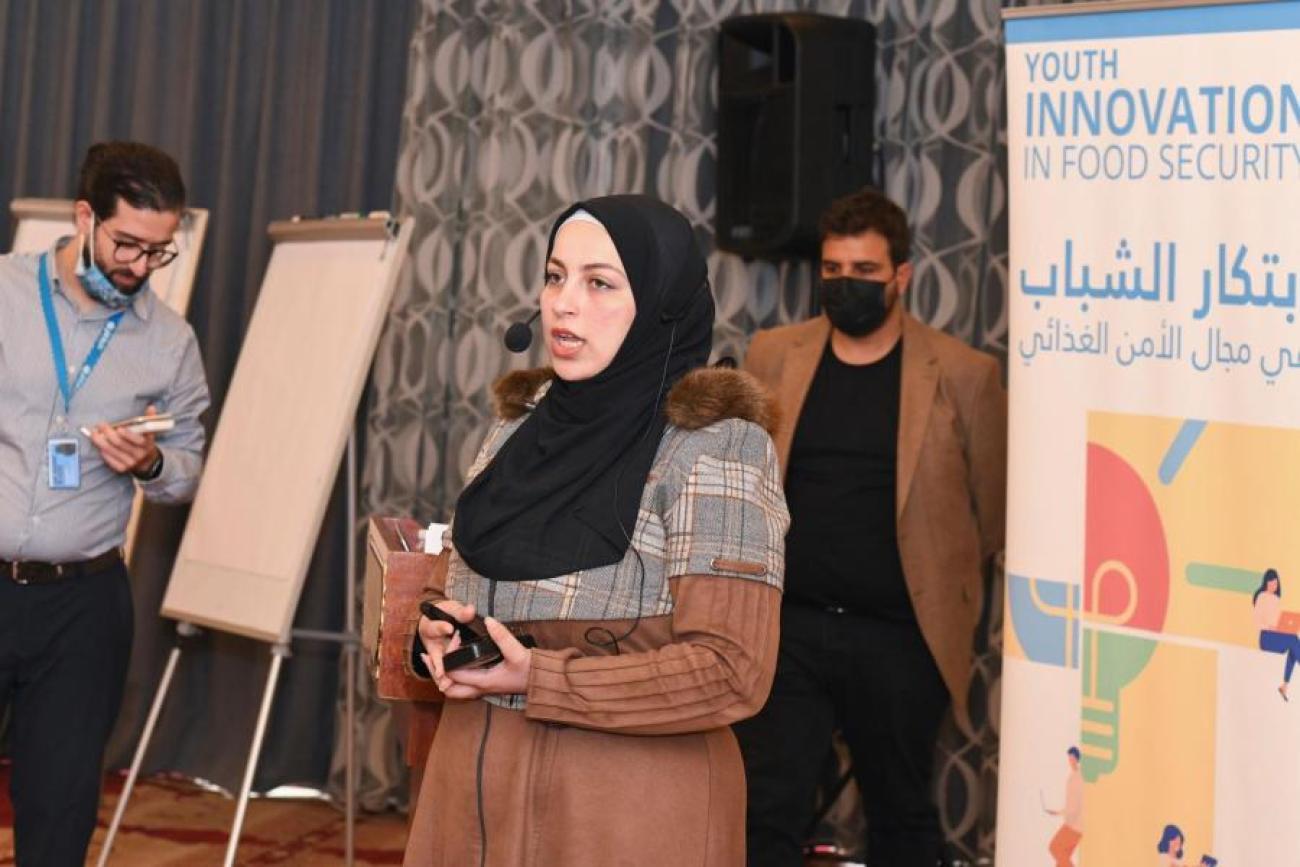Aya Kreik is a young innovator and architectural student from Amman. Together with her team of fellow students, Aya developed a project which effectively converted farm waste into organic fertilizers. These fertilizers were rich in nutrients, helping to revive the soil and encourage farmers to avoid using the harmful chemical alternatives.
“My innovation idea aims to increase plants’ immunity to diseases and helps the soil to retain water in a large proportion, which reduces the amount of irrigation water needed. A modern method for treating waste and does not produce greenhouse gases”. Aya said..
She explained why the demand for more sustainable food consumption in Amman is so high.
“The Jordanian Capital, Amman, is a very crowded city and there are no available spaces for farming. In addition, not all people are interested in healthy and organic food, because of lack of awareness and high prices. So, we were determined to raise awareness about the importance and benefits of this [organic] food. “
“I am proud of where I got to today. We are about to start the first multiple-output, women-led farm in Jordan".
"We, young people, need to think out of the box and come up with new ideas related to environmental sustainability,” said Aya.
Aya and her team were among 22 young Jordanians between the ages of 18 and 26 participated in a joint Youth in Food Security Innovation Programme. The Programme implemented by UNICEF and WFP provided support to these youth-led efforts to tackle food insecurity and create more opportunities for youth entrepreneurship and green innovation across the nation. As a country with one of the youngest populations in the world, (63% under the age of 30), it is crucial that UN teams help mobilize young people in nation-wide efforts to address food insecurity.
The joint UNICEF-WFP initiative provides young innovators in Jordan with a range of different capacity-building programmes in entrepreneurship and innovation within the food security sector. The programme spans the whole innovation cycle, from the early stages of coming up with a concept, to implementation and scaling up to turn ideas into action.
The young innovators received training on the implications of food insecurity, opportunities and challenges directly linked to food security, the role of technology in shaping the future of food, strategies for changing the traditional food chain, production, distribution, processing, marketing, consumption and digital marketing.







